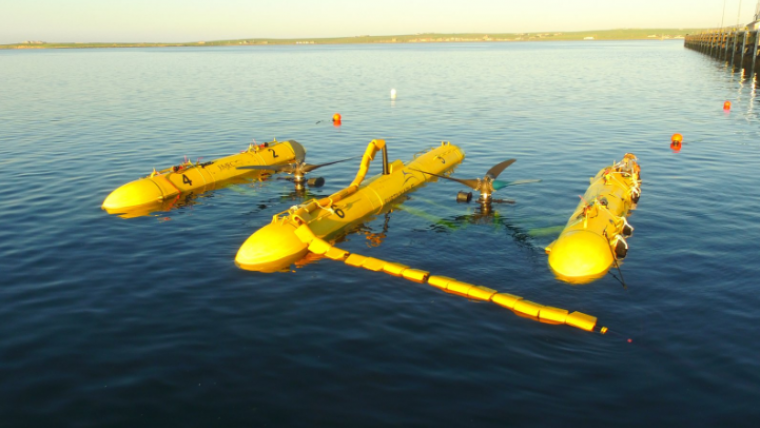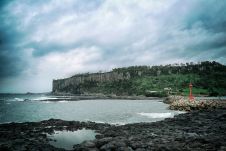European Marine Energy Centre among Top Influencing World Projects
Established in 2003, the European Marine Energy Centre (EMEC) is one of the world’s leading facility supporting the testing, demonstration and verification of wave and tidal energy devices, with 20 developers from 11 different countries having tested their cutting-edge renewable technology at EMEC. There are numerous success stories including the world’s largest floating tidal test turbine, Scotrenewables’ SR1-2000, which has generated up to 7% of Orkney’s electricity needs on occasion.
This activity has acted as a catalyst for economic growth in the region, encouraging local talent to take advantage of the jobs being created on their doorstep whilst also attracting people to move to the Orkney from across the world.
Marine renewables innovation
Orkney is now host to a highly experienced supply chain for the wave and tidal energy sectors, servicing local projects as well as exporting their knowledge and expertise globally. The Carbon Trust estimate that 20% of the UK’s electricity could come from marine renewables - an industry that the UK is in pole position and in which there are worldwide export opportunities worth billions.
Neil Kermode, managing director of EMEC, said his team is delighted to have been recognised for the pioneering and world-changing work that is taking place on their sites. “As well as the fantastic achievements in device development and testing, we are also driving and supporting projects which are daily fostering innovation at our test centre. In the last 12 months alone we became the first to produce hydrogen from tidal energy and recently hosted the deployment of Microsoft’s underwater data centre here in Orkney.”

“All the advances taking place at EMEC bring huge opportunities to the marine industries of the UK. With the continued encouragement, further investment and commitment from the UK Government, we know marine energy will help make the UK a prosperous, decarbonised and green economy.”
Institution of Civil Engineering
To mark the Institution of Civil Engineers’ 200th anniversary, and to support UK Government's Year of Engineering, the Institution is highlighting 200 inspirational and world-changing projects from around the world throughout 2018. Nominated by the ICE’s members and selected by an expert panel, the chosen projects illustrate the breadth and depth of civil engineering’s impact.
The European Marine Energy Centre joins the 200 projects which will be published throughout the year on the What Is Civil Engineering? pages of the ICE website. What is Civil Engineering? will not only host these projects but can also be used as a career guidance tool for those hoping to pursue a career in civil engineering. Once inspired by the projects being produced each month, there is comprehensive advice and guidance on how to become a civil engineer no matter what level of education someone has, or what stage in their career they have reached.
This platform has been designed to help promote the career of civil engineering after it was revealed that only 45% of adults know what the career entails and only 35% of young people could tell you what a civil engineer does.














